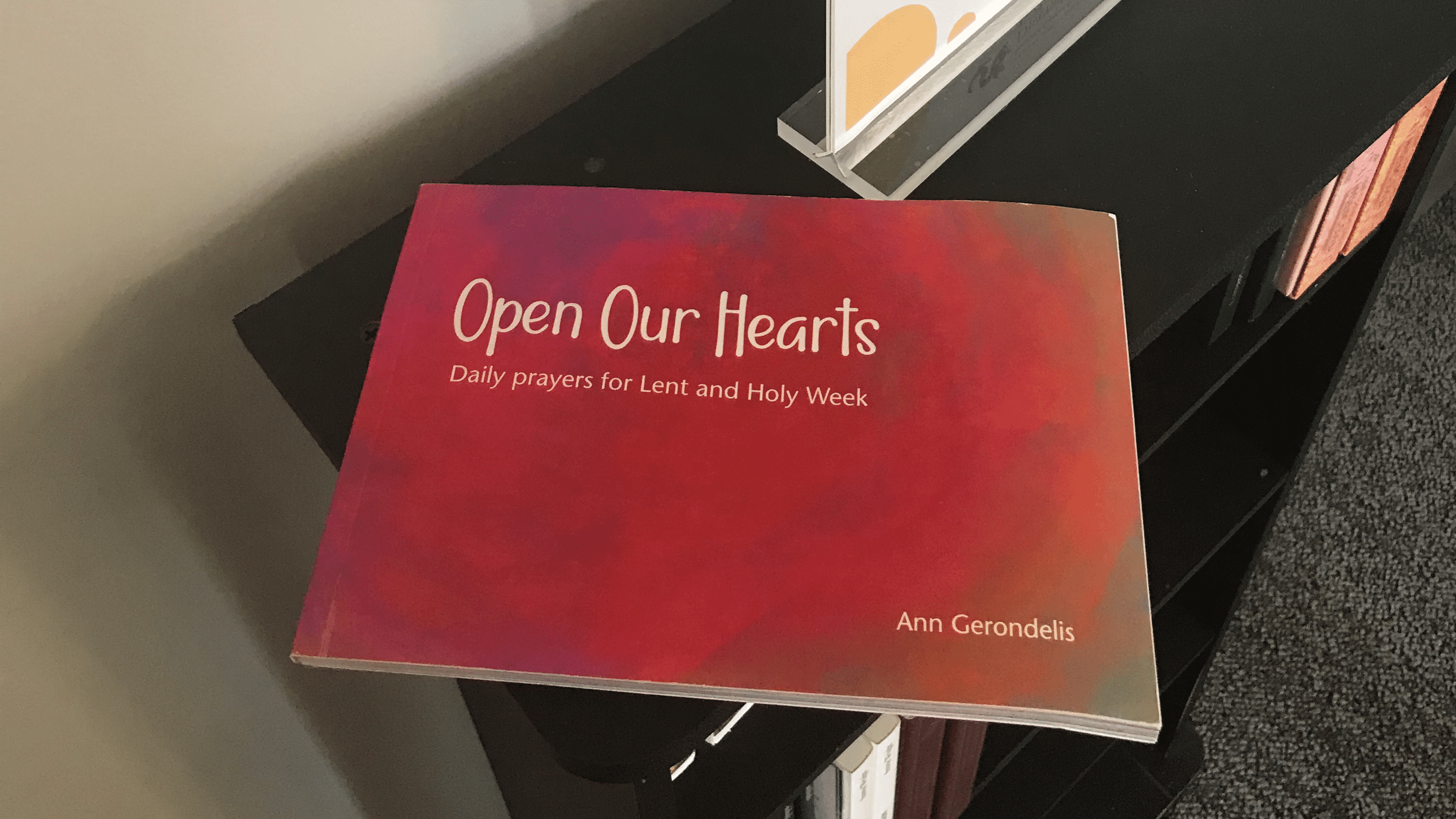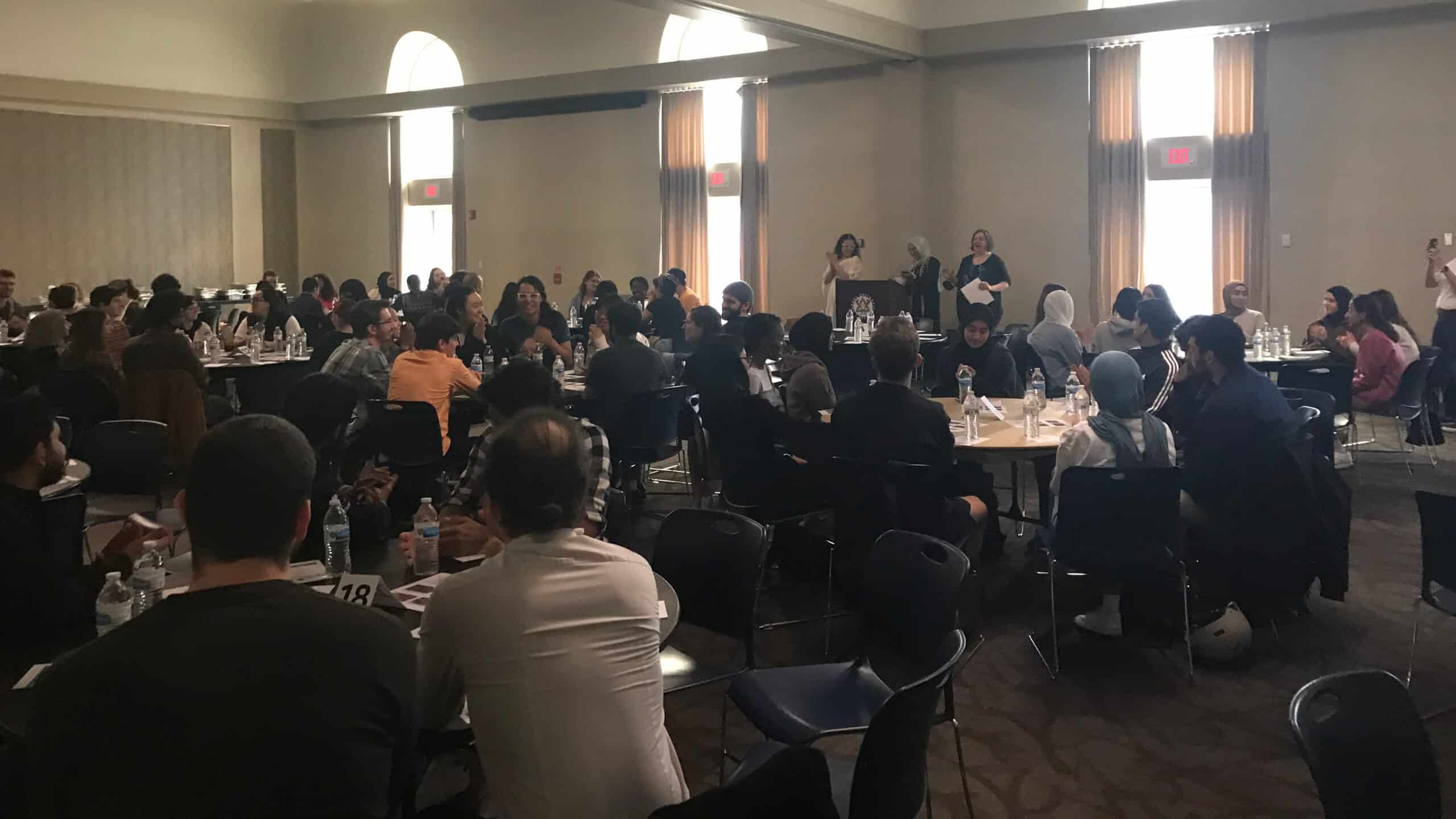PHILADELPHIA (BRN) – As a valued member of the Drexel University community for 18 years, I am given the opportunity to do things that most campus ministers do not do. This winter, Drexel hired a new Associate Director for the Student Center for Diversity and Inclusion (SCDI). I was privileged to be a part of the committee that interviewed the candidates.
The Student Center for Diversity and Inclusion supports religious student organizations on campus along with many other groups. It was important to be able to ask specific questions about how the potential candidates imagined the SCDI connecting with Christian and other religious groups.
In the interview process, because of my role as a campus minister and not just a student minister, I was able to talk about how I am a resource to help faculty, professional staff and administration manage the personal toll that working at Drexel takes on an individual.
Asking the candidates questions about how they manage stress and their personal support systems, gave the committee a window into whether the candidate would be able to persist at Drexel. It also helped me to present myself as a potential support for the candidate. Asking the question of the candidate in the presence of the rest of the interview committee helps the other members of the committee to see me as someone who they can turn to in times of high stress.
Being present in the interview process helped me encourage Drexel to hire someone who was favorable to religious life on campus in a way that is supportive of the Christian faith, it helped me establish a supportive and ministerial relationship with the new staff member even before they were hired, and it gave me the ability to present myself as a pastoral resource to several other professional staff and administrators at Drexel.
Since the hiring of the new staff member in January, we have worked together on several projects. The SCDI recommends books to read each month on a certain topic. April highlighted mostly contemporary memoirs of the lives of spiritual and religious people.
I was specifically asked to contribute suggestions for books from the Christian perspective. I submitted a list of five different books, two of them ended up being included and will be on display in the SCDI throughout the month of April. The books I suggested include: Lecrae’s second book, “I Am Restored,” and Beth Moore’s brand new book “All My Knotted-Up Life.”
In that same avenue, but as part of a different initiative, the university is actively working to provide prayer rooms in strategic locations on campus. In partnership with the SCDI and other campus entities, we are making sure the proper religious resources are present in these rooms.
This includes Christian materials such as Bibles and devotional resources. These devotional materials include a prayer book published by one of our Christian faculty members that uses her art to connect to specific prayers during the Christmas and Easter seasons.

The third project is an Interfaith Dinner. The Drexel Muslim Student Association provides a meal for students to break their fast during the month of Ramadan.
Monday (April 10), they opened one of their meals for an interfaith event in partnership with the SCDI and alongside of Jewish and Christian groups on campus in recognition of Ramadan, Easter and Passover overlapping this year.
Due to my relationships with the Muslim students and the SCDI, I have been asked to lead the students in a multi-faith conversation focused on fasting in our different religious traditions. I have the privilege of creating an environment where Christian students will be encouraged to talk to Muslim and Jewish students about how fasting models Jesus’ sacrifice on the cross at Easter, while they listen to Jewish students talk about Passover and Muslim students explain Ramadan.
Baptist Campus Ministries at Drexel were able to further contribute to the Interfaith Dinner by providing water bottles purchased with Baptist Resource Network (BRN) evangelism grant funds.
During the dinner I reconnected with a Muslim friend of mine. He had been away on an internship for over a year. We needed to catch up.

We were able to meet up the Thursday after the Interfaith Dinner and had a three hour long spiritual conversation. He is a Shia Muslim and, at times, feels isolated from most Muslims on campus, who are Sunnis.
Although I am somewhat familiar with the difference, he spent a considerable amount of time explaining it to me. We also discussed his home country of India’s Hindu dominant government and their treatment of Muslims. He hopes to stay in the United States after graduation.
Then the conversation transitioned to the differences between Christianity and Islam. I took some time to explain how the Islamic faith’s most fundamental principle is the divine inspiration of the Quran. Christians have similar beliefs about the Bible, but it is not our foundation.
Our foundation is in the resurrection of Jesus. We believe the Bible (and Christianity) is true because Jesus rose. Whereas Muslims believe in Islam because the Quran is true. Explaining that key difference between our faiths was helpful to him.
The conversation went one layer deeper. He asked me to be completely honest with him about how I see Islam. Based on the previous idea, I explained to him how the basis of Islam – the Quran – specifically says that the basis of Christianity, the resurrection, did not happen.
The Quran teaches that Jesus did not die on the cross, only that God made it appear that Jesus died. Without the crucifixion of Jesus there is also no resurrection. Then I mentioned, if God made it appear that Jesus was crucified when Jesus was not crucified, then I have been tricked by God. God has deceived me.
Last important question I asked him was, “Should it be counted against me for being tricked by God?” According to the Quran, God’s own deception has fooled me. He considered this a very powerful argument.
I typically do not get a chance to dive this deeply into the differences between Christianity and Islam with a student. When I do, we do not always end the conversation as friends. But this time, the student left my office excited because of the authenticity and depth of our chat. It strengthened our friendship, and we are both excited to revisit our conversation in the future.
At Drexel, I have the awesome responsibility to show what it means to be a committed Christian that believes in the gospel of Jesus Christ, but also to treat students, faculty and staff who believe differently with grace and respect. I get to model this for the Christians on campus and define what it looks like to be a follower of Christ for those who do not yet know Him.